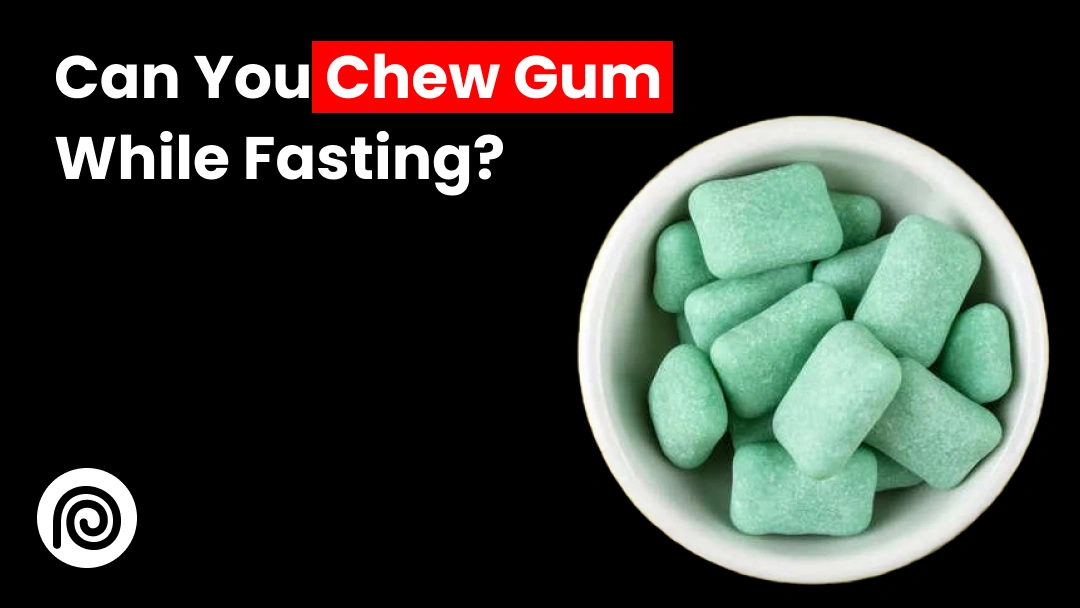Can I Have Chewing Gum When Intermittent Fasting

For those navigating the popular eating pattern known as intermittent fasting (IF), even seemingly minor choices like chewing gum can spark considerable debate. Does this simple habit break a fast, hindering weight loss and other purported benefits? The answer, as with many aspects of intermittent fasting, is nuanced and depends on individual goals and tolerances.
At its core, intermittent fasting involves cycling between periods of eating and voluntary fasting on a regular schedule. Proponents tout various health benefits, including weight management, improved insulin sensitivity, and cellular repair processes like autophagy. The critical question hinges on what constitutes breaking a fast and whether chewing gum interferes with these processes.
Understanding the Fasting State
The primary goal of intermittent fasting for many is to deplete glycogen stores and shift the body into a state of ketosis, where it burns fat for energy. This metabolic shift typically occurs after 12-16 hours of fasting, although individual results may vary. Anything consumed during the fasting period that triggers an insulin response could theoretically disrupt this process.
According to a 2014 study published in the journal Endocrine Reviews, even small amounts of carbohydrates or protein can stimulate insulin secretion. Therefore, the impact of chewing gum during a fast depends largely on its ingredients.
Sugar-Free Gum: A Grey Area
Sugar-free gum is the more commonly debated type. It typically contains artificial sweeteners such as aspartame, sorbitol, or xylitol. These sweeteners have minimal calories and are often marketed as not affecting blood sugar levels.
However, some argue that even zero-calorie sweeteners can trigger a cephalic phase insulin response. This response is a learned reaction where the body anticipates the arrival of nutrients upon tasting something sweet, leading to a slight insulin release. The extent of this response and its impact on a prolonged fast are still subjects of ongoing research.
Furthermore, artificial sweeteners like sorbitol can cause gastrointestinal distress in some individuals. The National Institute of Diabetes and Digestive and Kidney Diseases (NIDDK) notes that sugar alcohols, including sorbitol, are poorly absorbed by the small intestine, potentially leading to bloating, gas, and diarrhea.
Sugared Gum: Generally Discouraged
Sugared gum undoubtedly breaks a fast. The sugar content will spike blood glucose levels and trigger a significant insulin response, effectively interrupting the metabolic state intended by intermittent fasting. Its impact is similar to consuming any sugary snack during the fasting window.
Registered Dietitian Sarah Williams, RD, explains, "Consuming sugared gum during a fast completely negates the purpose of the fast. You're essentially consuming a small candy, which will raise your blood sugar and kick you out of ketosis if that's your goal."
Practical Considerations
The impact of chewing sugar-free gum also varies based on individual sensitivity and the duration of the fasting window. Some individuals may find that a piece or two of sugar-free gum doesn't significantly affect their fasting state, while others may experience noticeable changes in hunger levels or energy.
Dr. Emily Carter, MD, advises, "It's crucial to listen to your body. If you notice increased cravings, digestive issues, or a stall in your weight loss efforts after chewing sugar-free gum, it might be worth experimenting with eliminating it during your fasting periods."
The frequency and amount of gum chewing are also factors. Occasional chewing may have a negligible impact, while frequent or prolonged chewing could be more problematic.
Alternatives and Recommendations
If you find that chewing gum helps manage cravings or oral fixation during your fasting window, consider alternative strategies. Drinking water, herbal tea (without sweeteners), or black coffee can often satisfy the urge to put something in your mouth.
Some individuals find that mindfulness techniques, such as deep breathing or meditation, can help manage cravings and reduce the reliance on chewing gum. Experimenting with different strategies can help identify what works best for your individual needs.
Ultimately, the decision of whether to chew gum during intermittent fasting is a personal one. Paying attention to your body's response and experimenting with different approaches is key to finding a sustainable and effective strategy.
While sugar-free gum may have a minimal impact for some, it's important to be aware of the potential for insulin response and digestive discomfort. Sugared gum, on the other hand, is generally not recommended during fasting periods due to its significant impact on blood sugar levels. Prioritize listening to your body and adjusting your approach as needed.




![Can I Have Chewing Gum When Intermittent Fasting Can You Chew Gum While Intermittent Fasting? [Or Will You Gain Weight?]](https://static.wixstatic.com/media/175885_27b9679704544b5487bc96c8b22f0588~mv2.png/v1/fill/w_667,h_1000,al_c,q_90,usm_0.66_1.00_0.01/175885_27b9679704544b5487bc96c8b22f0588~mv2.png)


![Can I Have Chewing Gum When Intermittent Fasting Can You Chew Gum While Fasting? [Intermittent Fasting FAQ]](https://www.macymichelle.com/wp-content/uploads/2022/05/can-you-chew-gum-while-fasting.png)



![Can I Have Chewing Gum When Intermittent Fasting Can You Chew Gum While Fasting? [Intermittent Fasting FAQ]](https://www.macymichelle.com/wp-content/uploads/2023/02/can-i-chew-gum-while-intermittent-fasting-576x1024.png)






